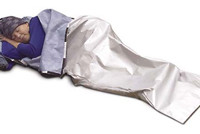Will you be ready when disaster strikes? Unfortunately, illnesses don’t care about disasters. Whether or not you’re in an emergency situation they’ll keep coming at you. Most people don’t take into account the need for medical care or prescriptions during a disaster. During a disaster you likely won’t have access to the same level of service as you are now accustomed to.
Because of this you’ll need to prepare for the future now by learning how to store antibiotics and other medicines. When you are in an emergency situation you will likely need some sort of medications. Because of the situation your body will be more susceptible to illness or infections. You’ll want to make sure you have an adequate supply of certain medications for your family.
There are 7 important antibiotics you will want to consider stocking up on. They are: sulfamethoxazole (400 mg), amoxicillin (both the 250 and the 500 mg strengths), metronidazole (250 mg), ciprofloxacin (both 250 and 500 mg), ampicillin (again, both 250 and 500 mg), cephalexin (250 and 500 mg) and doxycycline (100 mg).
One thing to take into account before purchasing these medications is whether or not you or another family member has an allergy to any of these medicines. If you are allergic to any of these antibiotics you will have to either not stock that particular item or find a substitute.
If you struggle with any chronic illness, especially if your immune system is compromised, you should be able to talk to your doctor. You may want to make arrangements with him to order several months’ worth of medications from your mail order pharmacy or your favorite local pharmacy.
You’ll want to stock up on as much of these items as possible for any future disaster. What do you do if you can’t get a hold of all the necessary medications? Some other preppers think outside of the box and buy the equivalent human antibiotic at their local vet’s office. You can buy them right off the shelf and you won’t need a prescription to get the medications.
There are some medicines that are prescribed to animals that are the same ones that are given to humans. For example, amoxicillin can be found under the name of fish-mox forte. The package clearly labels itself as amoxicillin. You can find doxycycline as bird biotic.
Don’t throw away a medication just because the “use by” date on the package has past. Once that date has passed it doesn’t mean that all of a sudden the medicine is no longer effective. In an emergency situation you will be able to use an “expired” medicine beyond the date (of course not years past). Just do your best to maintain fresh medications in your prepper storage location.
By law all manufacturers are required to put dates on medications. Most medicines will last a year or more beyond the use by date. But, you must store them properly if they are to be viable. They can’t be stored in a location with lots of sunlight and high temperatures and humidity.
As I just mentioned, an antibiotic can be rendered useless if stored in too much heat. You need to find a place that is not too hot or humid in order to continue to have useable medications. You’ll want to store your antibiotics in a bug out bag or other location that is in a cool and dry place.
Most preppers will store their medications in the freezer. But first you’ll want to seal them up with a vacuum seal. The lower temperature helps keep the medicine from breaking down as it would if it were stored at room temperature or higher. If you have a cellar or basement, that would be a great place to store your antibiotics.
We of course have to find balance in where or how we store our emergency supplies. The best place to store medications is in a cool place. But if that place is not readily accessible during an emergency we won’t be able to quickly grab our bug out bag. So, we have to plan ahead.





